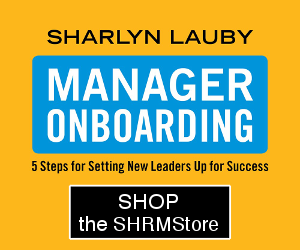We talk about the importance of being technology savvy and the increasing use of technology in business. It stands to reason that embracing technology needs to be part of our job description. But does that mean we should be concerned about technology making our jobs obsolete?
That was the question I received recently from a reader: What actions should recruiters take to make sure technology doesn’t make our roles obsolete?
So I reached out to some colleagues whose roles touch both recruiting and technology to get their take on what’s happening in the profession. Steve Boese is co-chair of the HR Technology Conference and host of the HR Happy Hour podcast. Recruiting Animal is the host of the Recruiting Animal show (broadcast live every Wednesday at 12n Eastern), and Stacy Donovan Zapar is the founder of Tenfold, a consultancy providing social training solutions and the most connected woman on LinkedIn.
[Steve Boese] The key I think for recruiters and any HR professionals who might be fearful or even just slightly concerned about advanced technologies or other forms of automation rendering them irrelevant or unnecessary is to be aware of the strengths and weaknesses of modern technology, and have an idea about where technologies are moving. Through basic kinds of automation like modern HRIS, payroll, time entry, ATS and benefits enrollment management systems, many if not most organizations have already ‘replaced’ or at least reduced the numbers of HR people needed to conduct many administrative HR functions.
In more progressive organizations, and for more strategically inclined HR professionals, this has allowed HR to shift time and effort into higher value activities, e.g., leadership development, succession planning or workforce analytics. For other HR professionals unable or unwilling to move from traditional, process-driven functions to more creative, problem-solving and strategic tasks, the automation trend is likely to put pressure on them to adapt and upskill, or face redundancy.
And this shift, automation and technology replacing large swaths of process work is not just happening in HR – we see this in manufacturing, financial analysis and even in legal analysis. Professionals of all kinds will probably face an automation ‘challenge’ sometime in their careers. What are some of the best ways for HR and other professionals to future-proof themselves in a world that is increasingly becoming automated? Three quick ideas come to mind.
- Be open and welcoming to working with these new technologies and not against them. Be the person willing to learn the new system or tool, to become an expert internal resource on its use and functions, and even someone who can potentially recommend better ways of working with the technology. Technology is coming to the workplace whether you like it or not, working with it and not standing in opposition to it positions you better for what is coming next.
- There are still lots of things at which robots and other kinds of automation are not terribly proficient. Negotiation, influence, emotional connection and understanding – these and other skills will remain for some time, maybe forever, human capabilities. So in the recruiting context that launched this question, the sourcing, assessing, grading and scoring aspects of the process are pretty ripe for automation and a technological solution. But sitting down across from a candidate and ‘selling’ your opportunity and company as a great career choice for them is not (yet) something a robot can accomplish. So make sure your ‘human’ skills are the ones you highlight and continue to develop.
- One additional skill or trait not yet subject to automation or an algorithm is creativity. Bringing new ideas, concepts, designs, etc. to the work environment is still the exclusive domain of people. So I would recommend for people to read more, write more, go to more movies, museums, concerts – whatever it is that interests you, in order to keep your creative juices flowing. People who can introduce, develop, build, market, and sell new products and services will always be in high demand and will not be subject to replacement or substitution. Automation makes existing processes more efficient or less expensive, it does not (yet) provide organizations with the ‘next big thing.’ Only people can do that.
[Recruiting Animal] We regularly hear that recruiting is being revolutionized by some new online website or software but is it? Let’s look at a few.
We hear a lot about social recruiting but what does that really mean? Recruiting on social media, yes, but which social media? Not Twitter. I interview recruiters on The Recruiting Animal Show and very few do any recruiting on Twitter and those that do recruit only a very small percentage of their people there.
Not many people recruit on Facebook either because people don’t usually put their professional credentials on Facebook.
When people talk about social recruiting, they mean Linkedin and Linkedin is, fundamentally, a resume database. Some of the profiles are very lean but as long as they give a name, company and title they tell us a lot about what the person does and can be used to identify potential candidates in the exact same way as the resume banks on older job boards.
The difference with Linkedin is that since the recession it has become OK for anyone to post their professional profile online without making her employer suspect that she is getting ready to leave and, because of that, you can find people there who you might not find on regular job board resume banks.
This hasn’t revolutionized recruiting because someone still has to identify the best prospect, contact them, present the opportunity and screen them and that’s what a recruiter does whether she works directly for the employer or as a third party supplier. There are sites where techies gather so recruiters hunt for people there but that hasn’t revolutionized recruiting because recruiters are still recruiting.
What promises to revolutionize recruiting is job matching. That’s software that identifies good candidates and contacts them automatically. If they are interested in the position they are directed to a website that contains screening questions. Their answers are graded by the software and the candidate is either rejected or scheduled for an interview with the hiring manager.
While intriguing, there are a number of weaknesses here. First of all, there is the assumption that the software can find enough good candidates online for the position. But while some professions are well presented online, some aren’t. Moreover, some professions are backing away from online profiles. IT programmers are contacted so often by recruiters that they are pulling their profiles off Linkedin and making it hard to identify them online. You need a researcher to do detective work to find these people.
Secondly, just sending someone an email about a job is a fairly passive way to approach them. There is no guarantee that the target will read the email. And if the prospect has questions about the job there is no one there to supply the answers for her. She would have to seek out the answers herself and if she is curious but not actively looking she probably won’t make the effort. Also, if she misunderstands any aspect of the role being offered there is no one there to rebut her objections.
And, finally, there is no one there to sell the job by finding out what might interest her and then pointing out that this is available via the proffered position. (I might add that when the candidate gets cold feet about a move during the hiring process there is no one there to remind her that this opportunity can fulfill her dreams or at least her wants).
So, what do recruiters have to do to avoid becoming obsolete?
- They have to be good researchers. They have to be able to find people in a variety of ways in a variety of locations.
- Recruiters need to have a somewhat forward personality. They have to be willing to approach strangers energetically, find out what they want, and tell them about positions that might fit their needs. (And, later in the hiring process they have to be ready to remind candidates about what they want if they decide to reject a reasonable offer).
- They have to understand a job well enough to make a good presentation and deal with objections. Or they have to be good at getting answers from hiring managers and getting back quickly to the candidate who asks them.
- They have to be able to interview well and do a good job checking references. This means asking good questions especially follow-ups when a candidate’s answer is vague or confusing or when some hesitation is revealed in the sound of the voice.
And these are all things that recruiters are doing already.
[Stacy Donovan Zapar] First off, I don’t think recruiting is at risk of being taken over by technology anytime soon. A good recruiter is a salesperson, a relationship-builder and a matchmaker. While technology can perform some of these duties, in the end, a great recruiter uses her power of intuition, her ability to influence and her people skills to be great at what she does.
My advice?
- Keep building those relationships. Network. Leverage those connections. Remember to give back.
- Educate your clients, your hiring managers and your candidates. Understand the true needs of your hiring team.
- Understand the company culture, the team culture, the hard and soft skills required to be successful in that role. Use that knowledge to identify a small handful of people who would fit perfectly into the role.
- Don’t job blast. Reach out in a targeted way. Customize your communications. Show you’ve done your homework and are treating them as a person, not just a number or an expendable resource.
- Always think long term, knowing that today’s no-go is tomorrow’s perfect fit, brand ambassador or referral source.
Keep recruiting this way and you’ll be infinitely more valuable than any software program out there, past, present or future!
[Tweet “Will #HR technology someday make recruiters obsolete?”]
My thanks to Stacy, Animal and Steve for sharing their experience and expertise. Lots of great information here, not only about what the future looks like in recruiting, but what recruiters today should be doing to ensure success. If you want to stay connected with Stacy, Steve and Animal, here’s how you can find them:
Recruiting Animal blog Twitter
What do you think? Are there industries or positions that might be more susceptible to an automated recruiting approach? Does every position need the “sell” that only a recruiter can provide? Share your thoughts in the comments!
Image courtesy of Sharlyn Lauby
3








Maureen Sharib says
To Steve’s remark, I’d argue that there’s a large need (and always has been) for understanding concept and design as it relates to contextual “jumping” in sourcing, assessing, grading and scoring in recruiting so even there I don’t see automation being the fix-it end-all that it’s sold to be and I believe more and more people are coming to this realization.